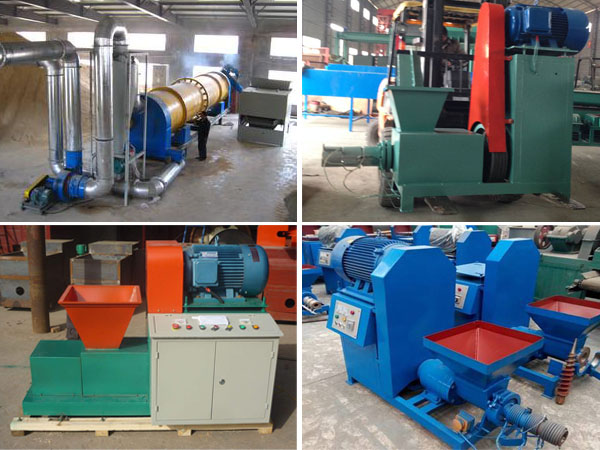The moisture content of raw material affects the quality of briquettes
The
briquette machine is the most important molding equipment in the production process of briquettes. The density of briquettes produced by the briquette machine directly determines the quality of the charcoal after carbonizing. While the density and caking property has much to do with the moisture content of the raw material.

The working principle of briquette machine is that under physical extrusion, biomass particles would produce a kind of ingredient called "lignin" under the condition of high temperature extrusion. Under the cementing of lignin, the screw propeller would press particles together layer by layer and squeeze them out by the forming sleeve. After cooling, lignin gets into solid state and retract into particles. Then, the briquettes are hardened and the density is higher.
The moisture content of the material plays an important role in this process. If the moisture content is too high, the lignin is not sticky; if the moisture content is too low, the lignin is not diluted without mobility to adhere to the surrounding materials. The experimental results show that when the moisture content of the material is 6~14%, the bonding effect and the quality of the briquettes are the best. It is best to use pulsed air flow drying system to dry the sawdust and other particle materials. The airflow drying machine is equipped with boiling room, which can make the materials with different moisture content get through respectively into the next period of drying, then the water content of materials would be consistent to ensure the quality of
briquettes produced.
The optimum density of briquettes produced by briquette machine is 1:1. If the density is too low, the briquettes would break easily, which would increase the crack after carbonization and influence the appearance and product quality of the finished product. In general, it takes a lot of effort and skill to make qualified and compact briquettes with the briquette machine.
